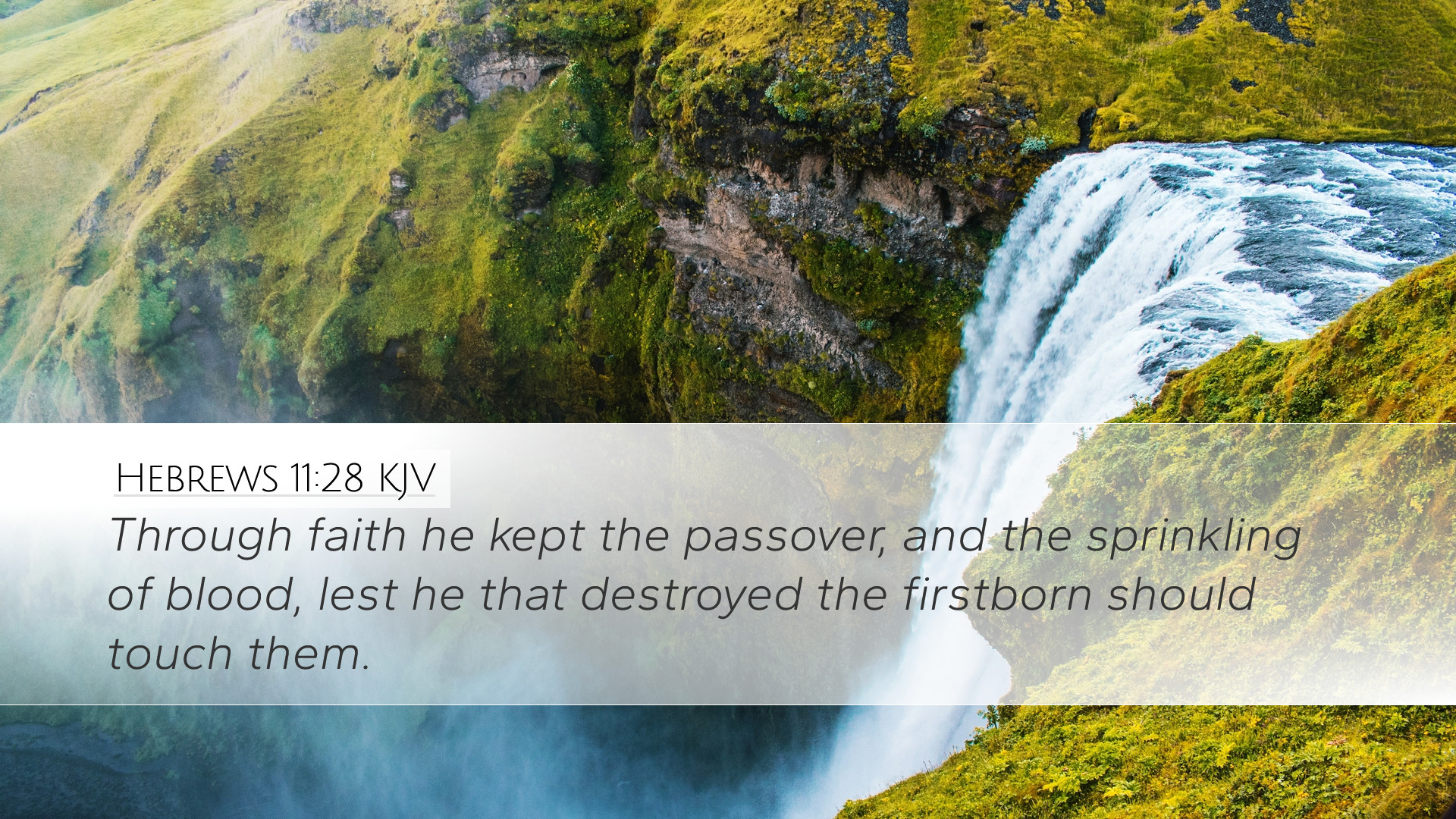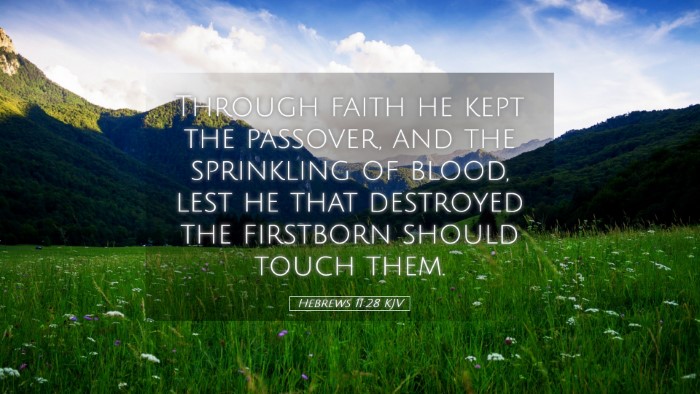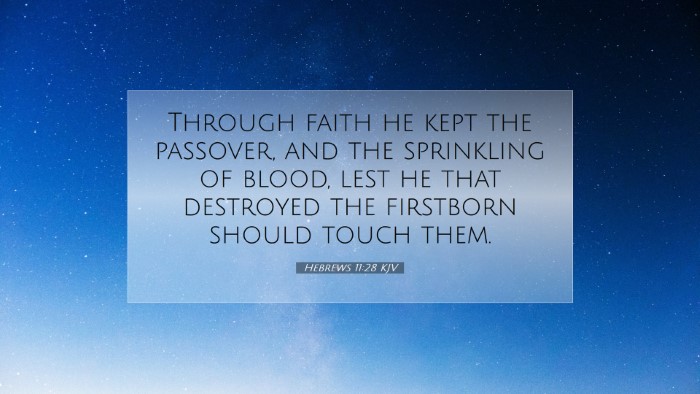Hebrews 11:28 - Commentary
Verse Text: "Through faith he kept the Passover, and the sprinkling of blood, lest he that destroyed the firstborn should touch them." (Hebrews 11:28)
Introduction
The analysis of Hebrews 11:28 reveals profound insights into the act of faith demonstrated by Moses and its significance in the Exodus narrative. This verse is not only pivotal to understanding the faith of Moses but also serves as a lens through which the themes of salvation, obedience, and divine protection can be viewed. The comparative study of public domain commentaries provides a comprehensive exploration of the implications of this verse.
Moses and the Passover
Background Context: The reference to keeping the Passover relates back to the events described in Exodus 12, where God instituted this feast as a means of delivering the Israelites from bondage in Egypt. This was a defining moment for the nation of Israel, as it marked their transition from slavery to freedom.
Matthew Henry's Commentary emphasizes the role of faith in Moses’ action. He notes that Moses, by faith, commanded the Israelites to observe the Passover. This act was not merely a ritual; it was a profound declaration of trust in God's promises and power.
Albert Barnes highlights the importance of obedience in the act of keeping the Passover. The Israelites were instructed to sprinkle the blood of the lamb on their doorposts as a sign of faith, representing their reliance on God for protection from the impending judgment upon Egypt. This physical act of sprinkling blood was a demonstration of faith leading to action.
The Sprinkling of Blood
The phrase ‘the sprinkling of blood’ points directly to the sacrificial system, illustrating the vital doctrine of atonement. Adam Clarke points out that the blood of the Passover lamb symbolized protection and salvation: it was the means by which death would ‘pass over’ the Israelite households. The blood was not magical; rather, it was effective because of the faith that accompanied the act.
- Faith Aspect: The act of sprinkling was an expression of belief in God's promise to spare them from death.
- Theological Implications: This foreshadows the ultimate sacrifice of Christ, whose blood offers salvation and protection from spiritual death.
Divine Judgment and Protection
The latter part of the verse mentions ‘lest he that destroyed the firstborn should touch them,’ which links the obedience of Moses and the Israelites with the broader narrative of divine judgment. Matthew Henry elucidates this point by stating that the act of obeying God's command provided a safeguard against divine retribution. The sprinkling of blood was a literal barrier that spoke to their faith in God's promise.
Barnes contrasts the fate of the Egyptians and the Israelites, underscoring that the destruction of the firstborn was a manifestation of God's judgment against idolatry and oppression. The Israelites' faith in the Passover not only saved them from physical death but also set them apart as God's chosen people, thereby fulfilling His covenant promises.
The Legacy of Faith
This passage also serves as a reminder of the legacy of faith that the story of Moses imparts. Adam Clarke suggests that the faith exhibited during the Egyptians’ last night echoes throughout generations; it is an invitation for the faithful to trust in God's deliverance.
This verse reminds modern believers of the importance of faith in their own lives, particularly during times of danger and uncertainty. As many pastors and theologians emphasize, true faith manifests itself in obedience, just as it did for Moses and the Israelites during their deliverance.
Conclusion
Hebrews 11:28 encapsulates essential tenets of the Christian faith—the supremacy of faith, the necessity of obedience, and the assurance of God's protection. The insights drawn from the commentaries illuminate the richness of this verse and encourage a deeper examination of how the lessons of the Passover apply in contemporary Christian life. Just as the Israelites had to actively trust and obey God’s command, today’s believers are called to a life of faith that responds to God’s redemptive work.


